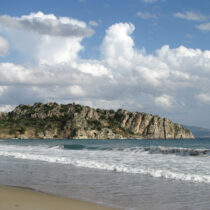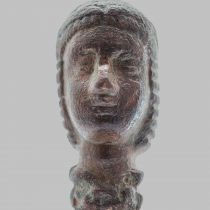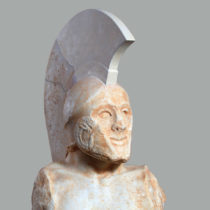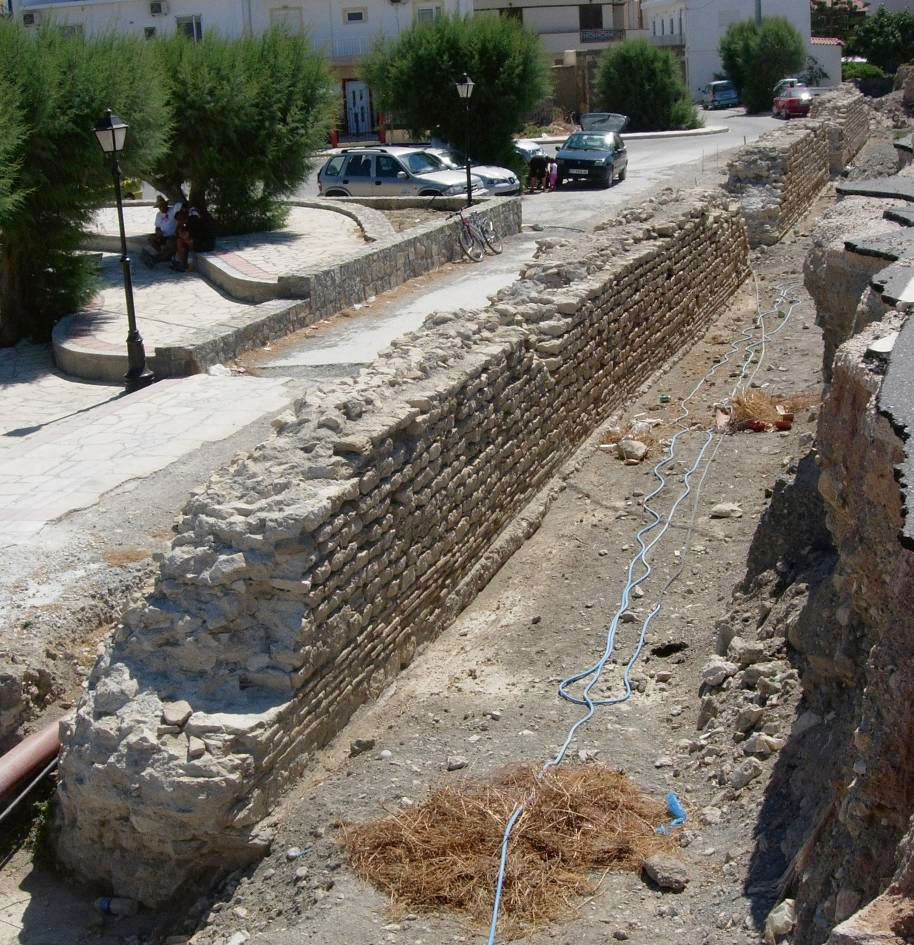Frankfurt archaeologists discover ‘Roman Village’ in Gernsheim
During their first Gernsheim dig last year, Frankfurt University archaeologists suspected that a small Roman settlement must have also existed here in the Hessian Ried.
EMAC 2015 ‐ 13th European Meeting on Ancient Ceramics
The preliminary conference programme for EMAC 2015.
Unlocking secrets of how fossils form
Scientists report in ACS' journal Analytical Chemistry a new way to probe fossils to find out how these ancient remains formed in greater detail than before.
The Doridis telescope turned to the sky
The Doridis telescope is again fully functional for observing the wonders of the Athens night sky by the public.
“Byzantine Pompeii” stays at the heart of Thessaloniki
A new decision issued by the Central Archaeological Council (KAS) favors the in situ preservation of the antiquities found two years ago at the heart of Thessaloniki.
Gallery talks at the Acropolis Museum
The Acropolis Museum gives visitors the opportunity to discover the landscapes, the people and the great archaeological exhibits of Samothrace, together with the Museum’s Archaeologist-Hosts.
Archaeologists unearthed monumental stone structures in the Carpathians
The oldest example of stone wall in the history of construction in the Polish lands, more than two and a half thousand years older than Romanesque architecture, has been discovered by archaeologists from Kraków on Zyndram’s Hill in Maszkowice (Małopolska).
The Egyptian Archaeology Study Programme at NVIC, Cairo
A unique two month training program organised by the Netherlands-Flemish Institute in Cairo, Egypt.
Ambush hunting by early humans in the Kenyan Rift
Around one million years ago, early humans were skilful at using the landscape features of the Kenyan Rift to ambush and kill their prey, according to new research published in Scientific Reports.
New findings at Kouklia-Palaepaphos
This year’s six week investigations focused on the exploration of a monumental complex, which runs along the north side of a walled citadel on the Hadjiabdoulla plateau.
12th International Congress of Cretan Studies
The selected thematic axis for all three sections of the 12th International Congress of Cretan Studies shall be mobility.
Fellowship opportunity at the Metropolitan Museum of Art
Two fellowship positions funded by The Andrew W. Mellon Foundation provide scholarly support for the MET’s curatorial program.
Sleepy Hollow in Ireland
Heavy rains and winds in County Sligo, Ireland, toppled a massive, centuries-old beech tree, bringing to light the skeleton of a Medieval teenager.
Identifying the sex of human skeletal remains
Being able to identify the sex of human skeletal remains is crucial to avoid creating a distorted version of history, ANU Honours student Clare McFadden said.
Was Darwinius a little longer in the tooth than previously thought?
A famous fossil of an early primate shares more in common with modern lemurs based on how its teeth erupted.
Site of elephant butchering came to light in Megalopoli
Marathousa 1 is the only known “butchering site” of elephants in the Balkans and one of the oldest archaeological sites in Greece.
Kerameikos
Volume dedicated to the archaeological site and the museum of Kerameikos. The edition is part of the Museums Cycle series of the John S. Latsis Public Benefit Foundation.
Skilled Labour and Professionalism in Ancient Greece and Rome
Call for abstracts for papers focussing on skilled labour and professionalism in any period of classical antiquity. Deadline: November 2, 2015.
Neolithic skeleton reveals early history of rickets
Rickets has been identified in a Neolithic skeleton from the Scottish island of Tiree, making it the earliest case of the disease in the UK.
Extinct human species found in cave may rewrite history
Researchers announced the discovery of a new species of hominin, a small creature with a tiny brain that opens the door to a new way of thinking about our ancient ancestors.
Danish Museums Association: A 3-day Learning Exchange
An opportunity to know the Danish museum landscape and learn about the Danish museums’ legislation.
A Late Bronze Age court-centered building at Sissi
Excavations focused on the exploration of a Late Bronze Age (16th c. BC) complex tentatively identified as a court-centered building during the 2011 campaign.




























